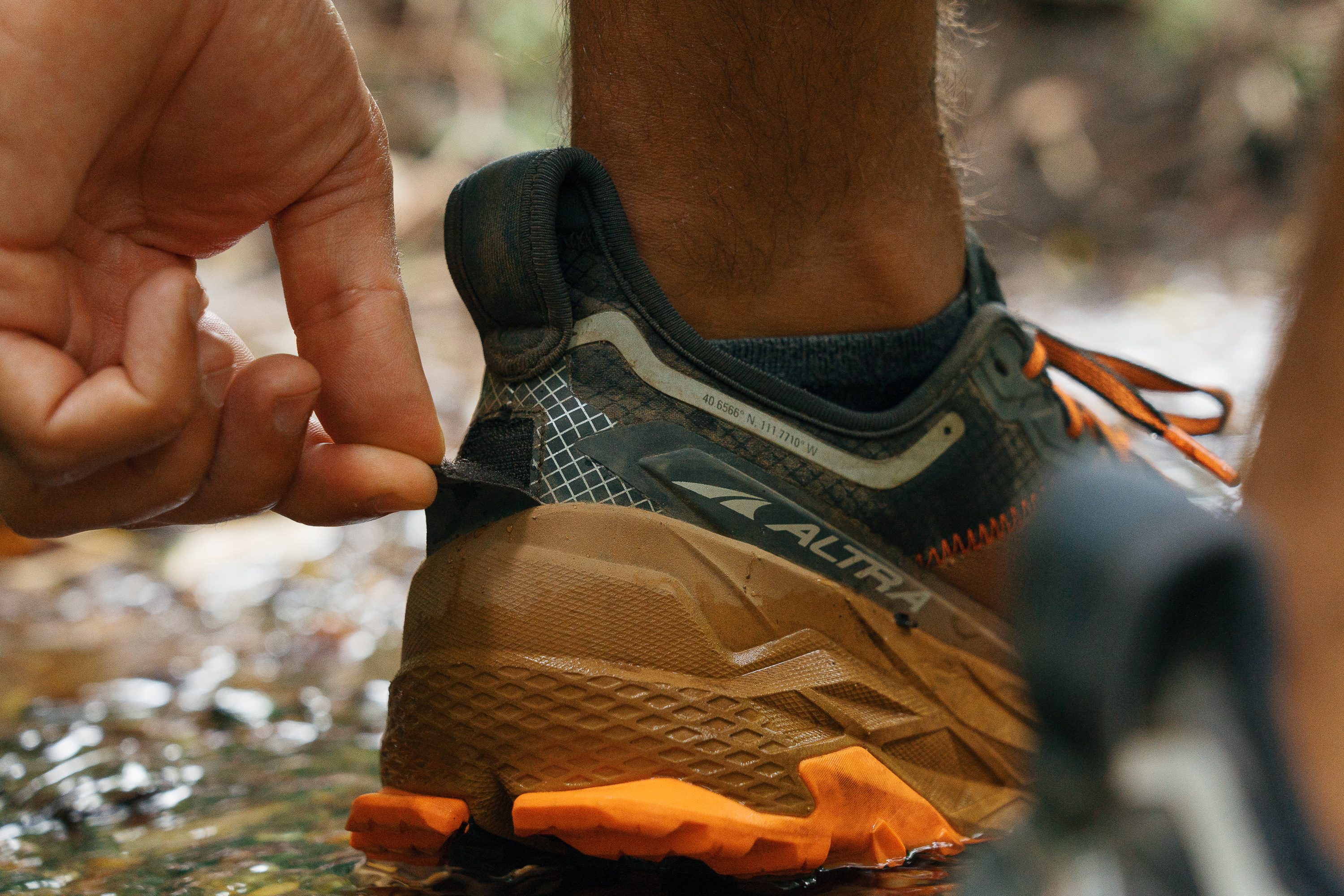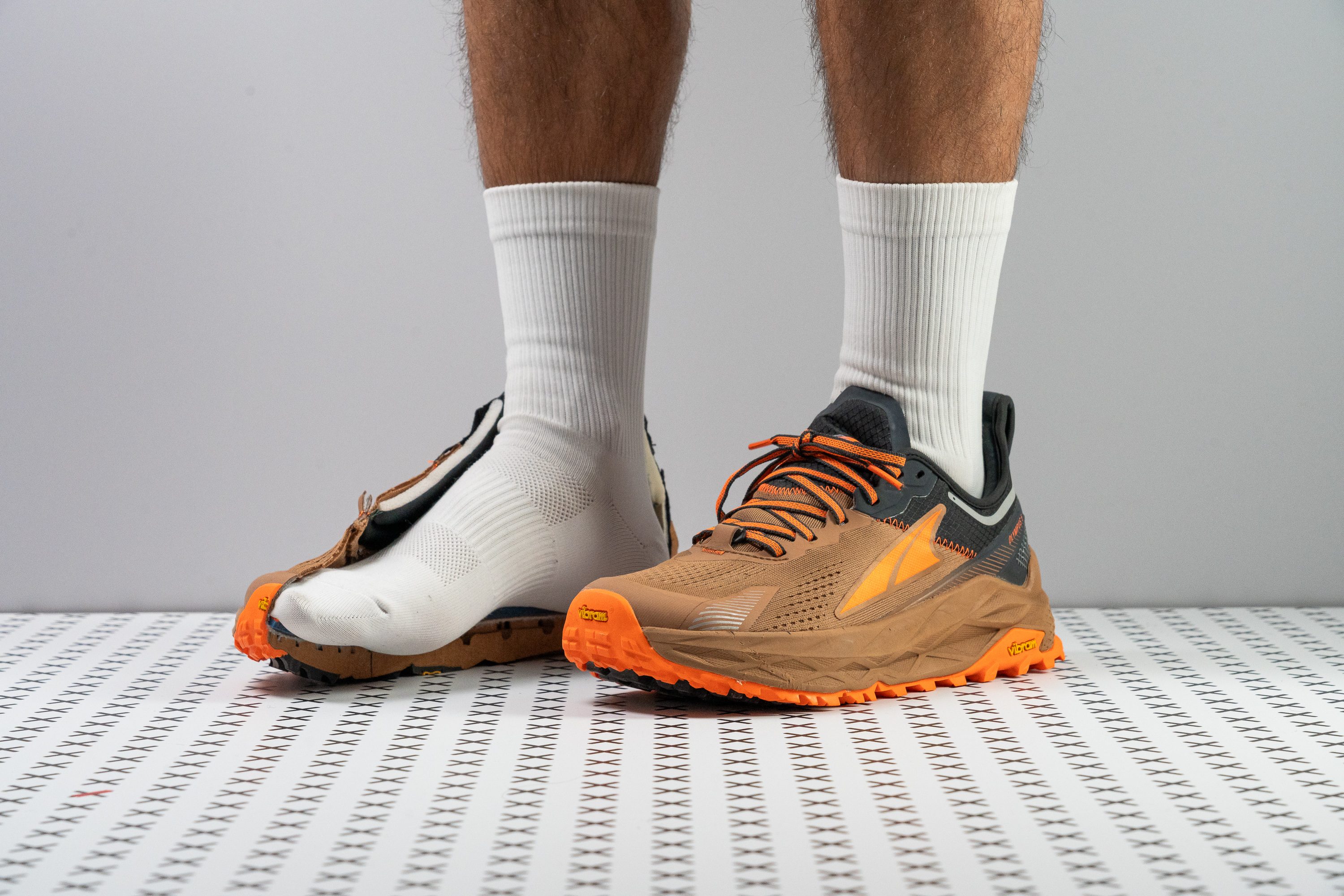Our verdict
- Top pick in best Altra running shoes (2023)
- Top pick in best running shoes for hiking (2023)
Pros
- Grippy on wet and dry trails
- Protective muscles
- Comfort is a 10/10
- Toe box welcomes wide feet
- Gives out energy
- Breathable
- Stable ride
- Heel lockdown is terrific!
- Easy on and off
Cons
- Durability couldn't be worse
- Annoying lace bites
- It's a splurge
Audience verdict
Comparison
The most similar running shoes compared
+ + Add a shoe | |||||
|---|---|---|---|---|---|
| Audience score | 83 Good! | 81 Good! | 94 Superb! | 87 Great! | |
| Price | $170 | $175 | $160 | $180 | |
| Trail terrain | LightModerate | LightModerate | LightModerate | Moderate | |
| Shock absorption | - | Moderate | - | Moderate | |
| Energy return | - | Moderate | - | Moderate | |
| Arch support | Neutral | Neutral | Neutral | Neutral | |
| Weight lab Weight brand | 11.5 oz / 325g 12.3 oz / 350g | 12.6 oz / 357g 12.5 oz / 354g | 11.4 oz / 322g 10.2 oz / 290g | 10.7 oz / 302g 10.7 oz / 303g | |
| Drop lab Drop brand | 2.0 mm 0.0 mm | 0.7 mm 0.0 mm | 6.2 mm 4.0 mm | 4.0 mm 4.0 mm | |
| Strike pattern | Mid/forefoot | Mid/forefoot | Mid/forefoot | Mid/forefoot | |
| Size | Slightly small | Slightly small | True to size | True to size | |
| Midsole softness | Balanced | Balanced | Balanced | Soft | |
| Difference in midsole softness in cold | Normal | Normal | Normal | Small | |
| Toebox durability | - | Very good | Decent | Good | |
| Heel padding durability | - | Good | Good | Good | |
| Outsole durability | - | Good | Decent | Good | |
| Breathability | Moderate | Breathable | Breathable | Moderate | |
| Width / fit | Wide | Medium | Medium | Medium | |
| Toebox width | - | Wide | Medium | Wide | |
| Stiffness | Stiff | Stiff | Stiff | Moderate | |
| Torsional rigidity | Moderate | Stiff | Stiff | Stiff | |
| Heel counter stiffness | Moderate | Moderate | Moderate | Flexible | |
| Lug depth | 3.0 mm | 3.5 mm | 3.2 mm | 4.0 mm | |
| Heel stack lab Heel stack brand | 33.0 mm 33.0 mm | 32.2 mm 35.0 mm | 32.8 mm 28.5 mm | 30.3 mm 36.0 mm | |
| Forefoot lab Forefoot brand | 31.0 mm 33.0 mm | 31.5 mm 35.0 mm | 26.6 mm 24.5 mm | 26.3 mm 32.0 mm | |
| Widths available | Normal | Normal | Normal | Normal | |
| For heavy runners | ✗ | ✓ | ✗ | ✗ | |
| Season | All seasons | SummerAll seasons | SummerAll seasons | All seasons | |
| Removable insole | ✓ | ✓ | ✓ | ✓ | |
| Orthotic friendly | ✓ | ✓ | ✓ | ✓ | |
| Ranking | #528 Bottom 22% | #298 Bottom 22% | #2 Top 1% | #145 Top 38% | |
| Popularity | #306 Top 45% | #115 Top 30% | #357 Bottom 7% | #103 Top 27% |
Size and fit
Size
Altra Olympus 5 fits slightly small (87 votes).
Who should buy the Altra Olympus 5
Add the fifth version of the Altra Olympus to your running shoe rotation if you want a protective and comfy shoe for:
- long, slow runs on the trails
- backpacking and hiking
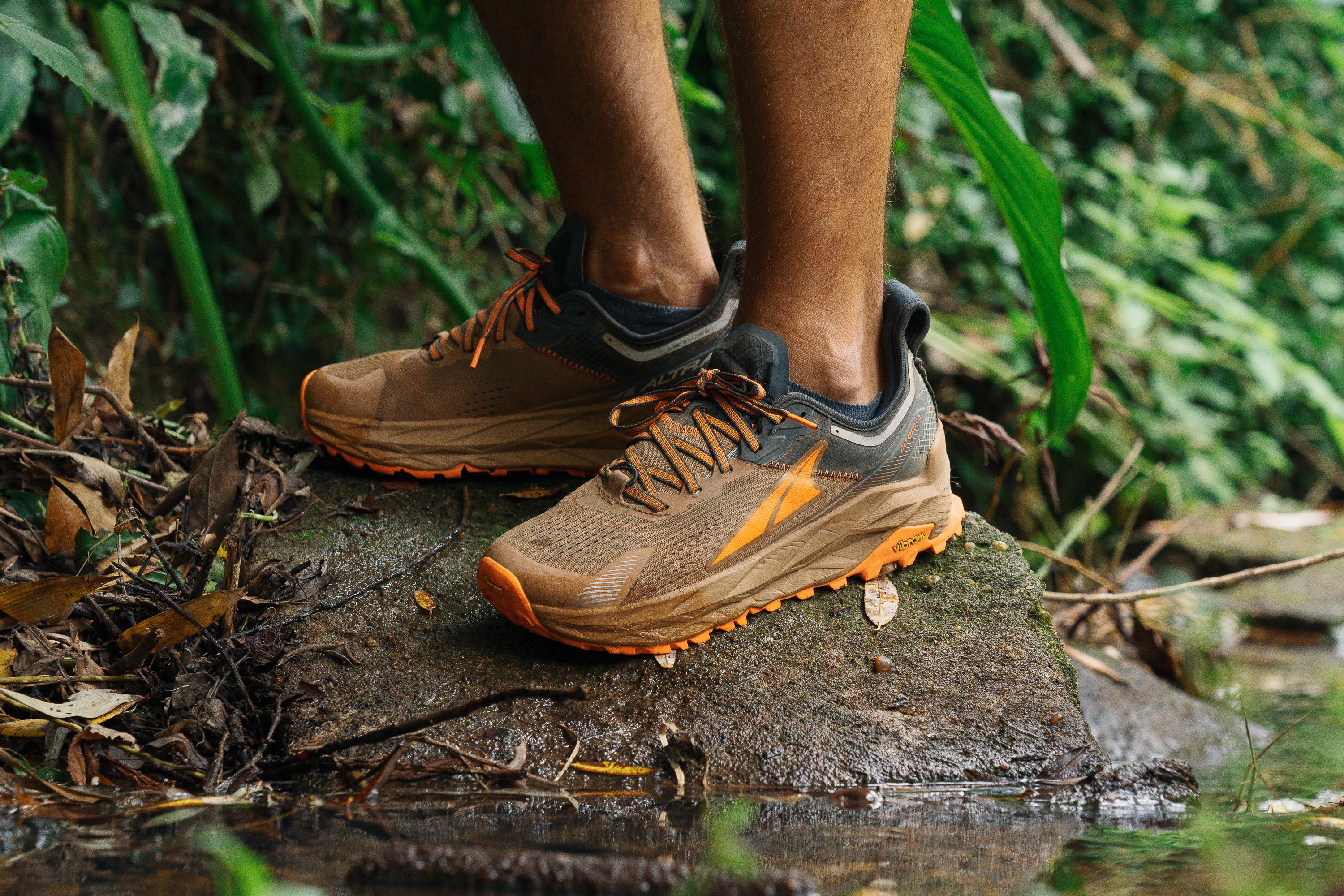
Who should NOT buy it
For its hefty $170 price, the Olympus 5 has some serious durability issues. If you want a shoe that will last you a long time and is less expensive, we are of the opinion that the Altra Lone Peak 6 will fit you just right. And if you don't want any of that lace bite, you're better off with the Altra Superior 6.
Altra Olympus 5 vs. 4
The newer iteration of the Olympus introduces the following updates:
- roomier toe box
- more padded heel for better lockdown
- pull tab added for easy on and off
- snugger, more secure fit
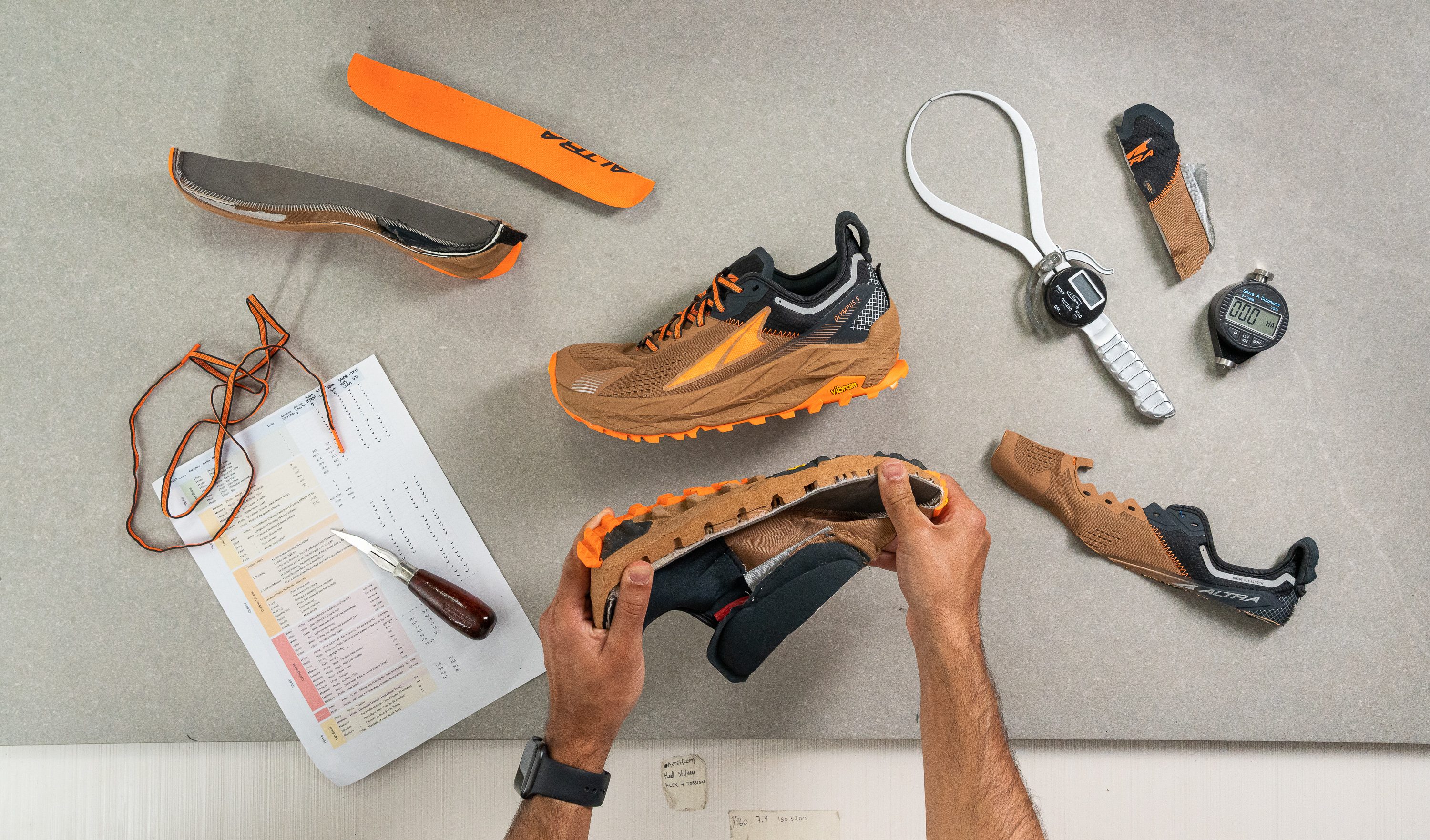
You'll forget about the miles
And that's because this trail shoe is super comfortable.
Based on our durometer measurements, the foam on the Altra Olympus 5 is moderately soft. It is 20% softer than the average of trail running shoes, to be specific.
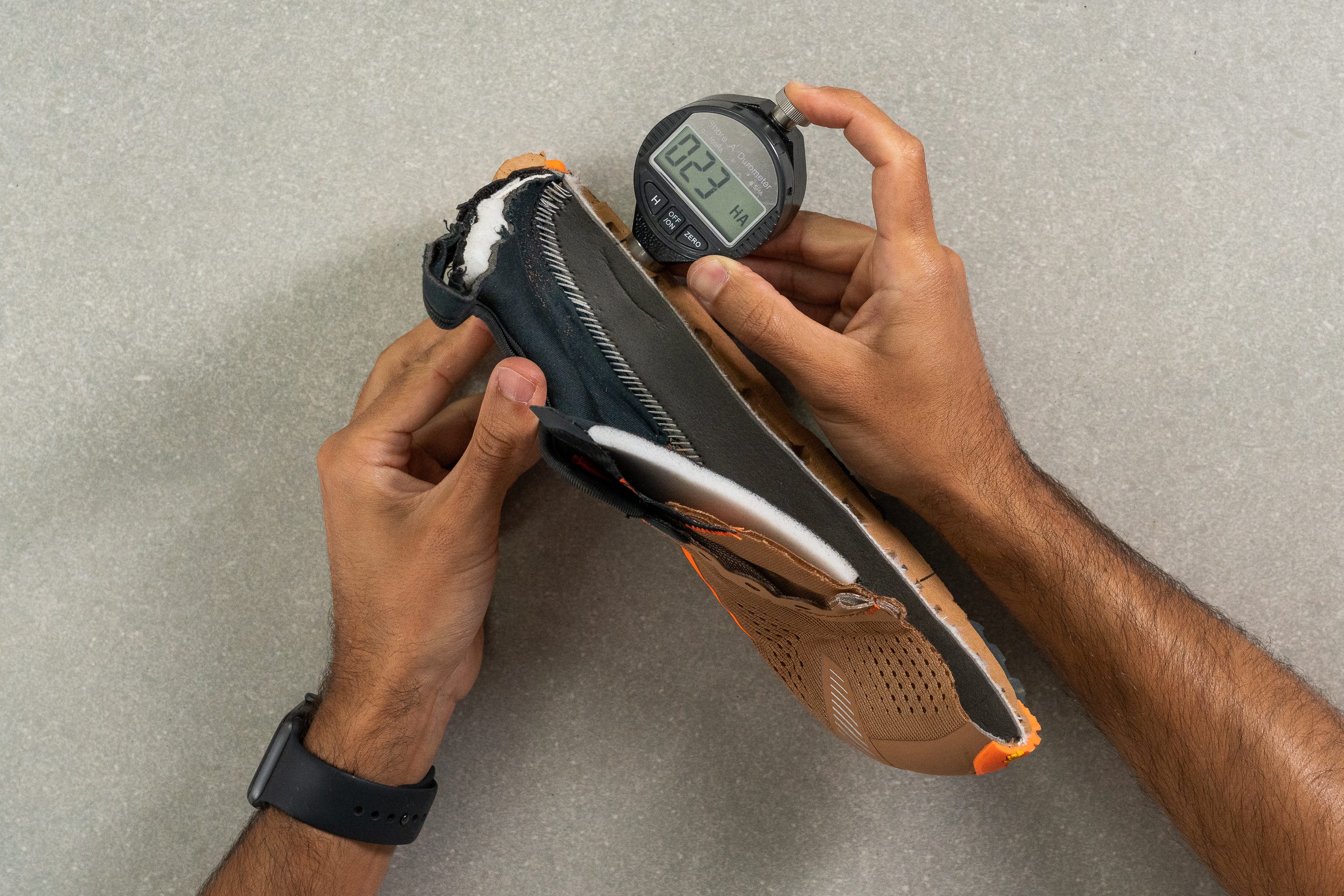
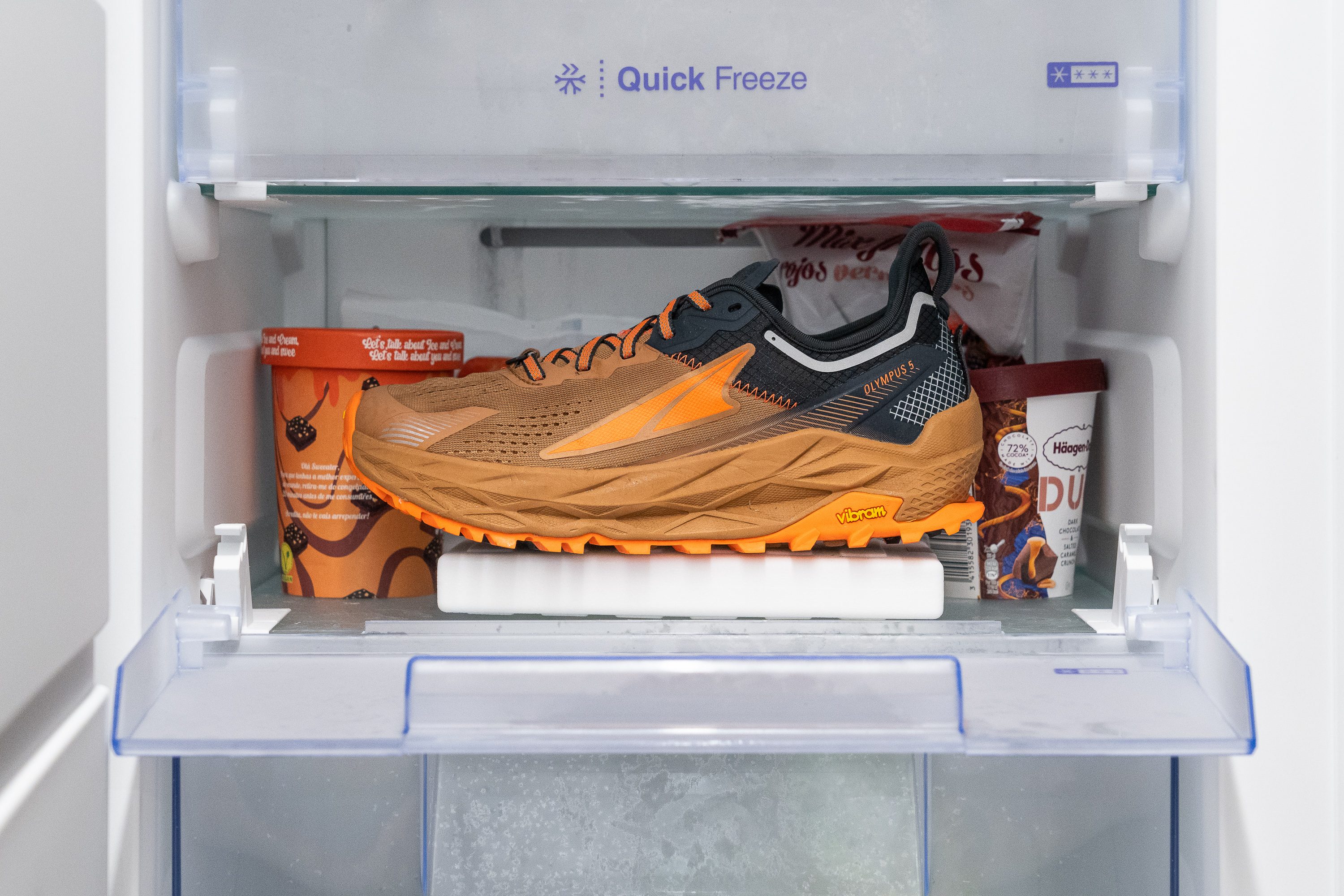
When exposed to cold temperatures, the shoe's cushioning firms up a little more than other foam types. It becomes 36.3% more rigid.
There's nothing quite like the Olympus 5's protection
Apart from its comfy and well-cushioned ride, the Altra Olympus 5 also has more beef to it. So much so that you don't have to worry about the rocks and debris beneath you.
This Altra shoe has an average stack height in the heel (33 mm) compared to other running shoes but is significantly thicker in the forefoot: 31 mm over the average 24 mm.
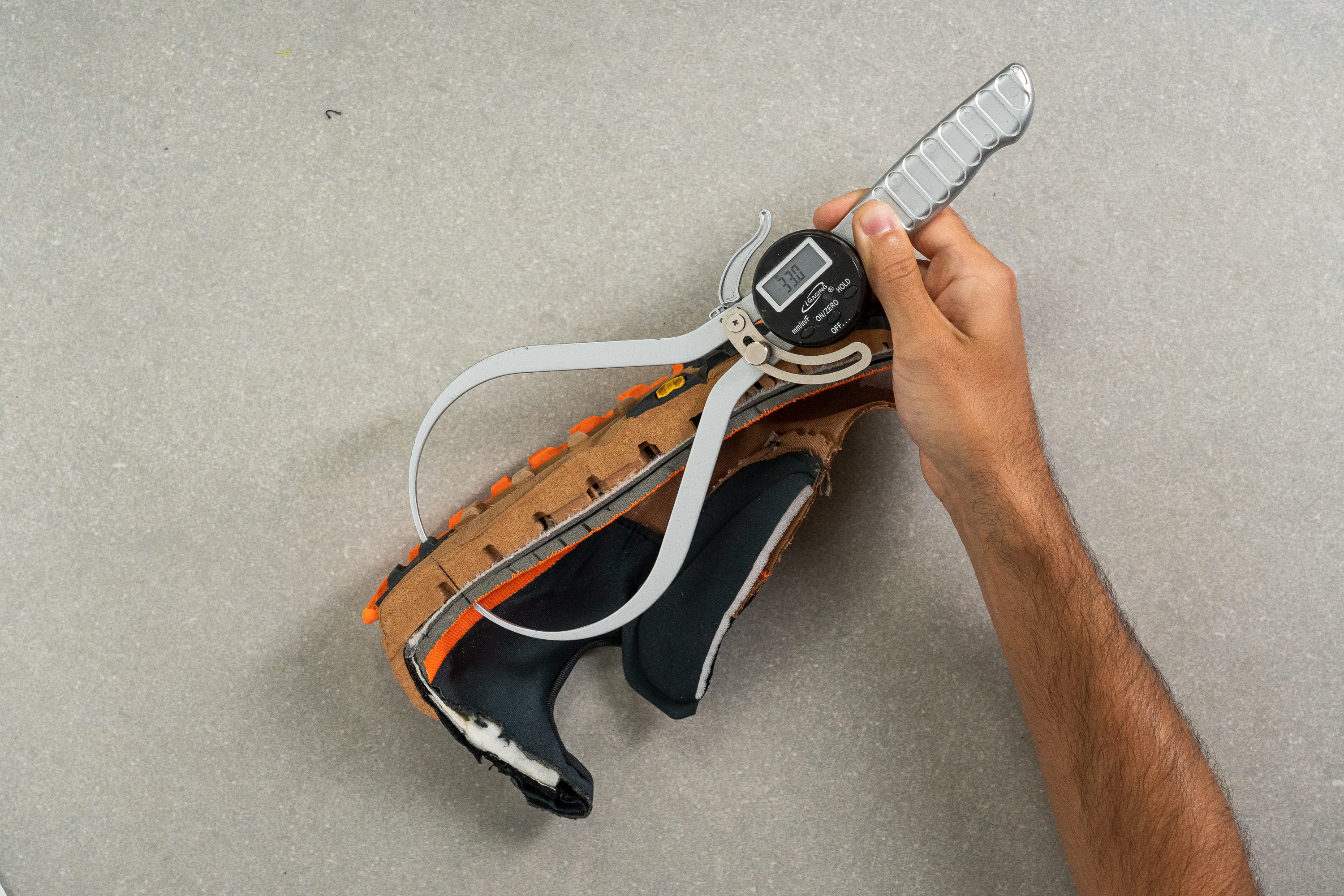
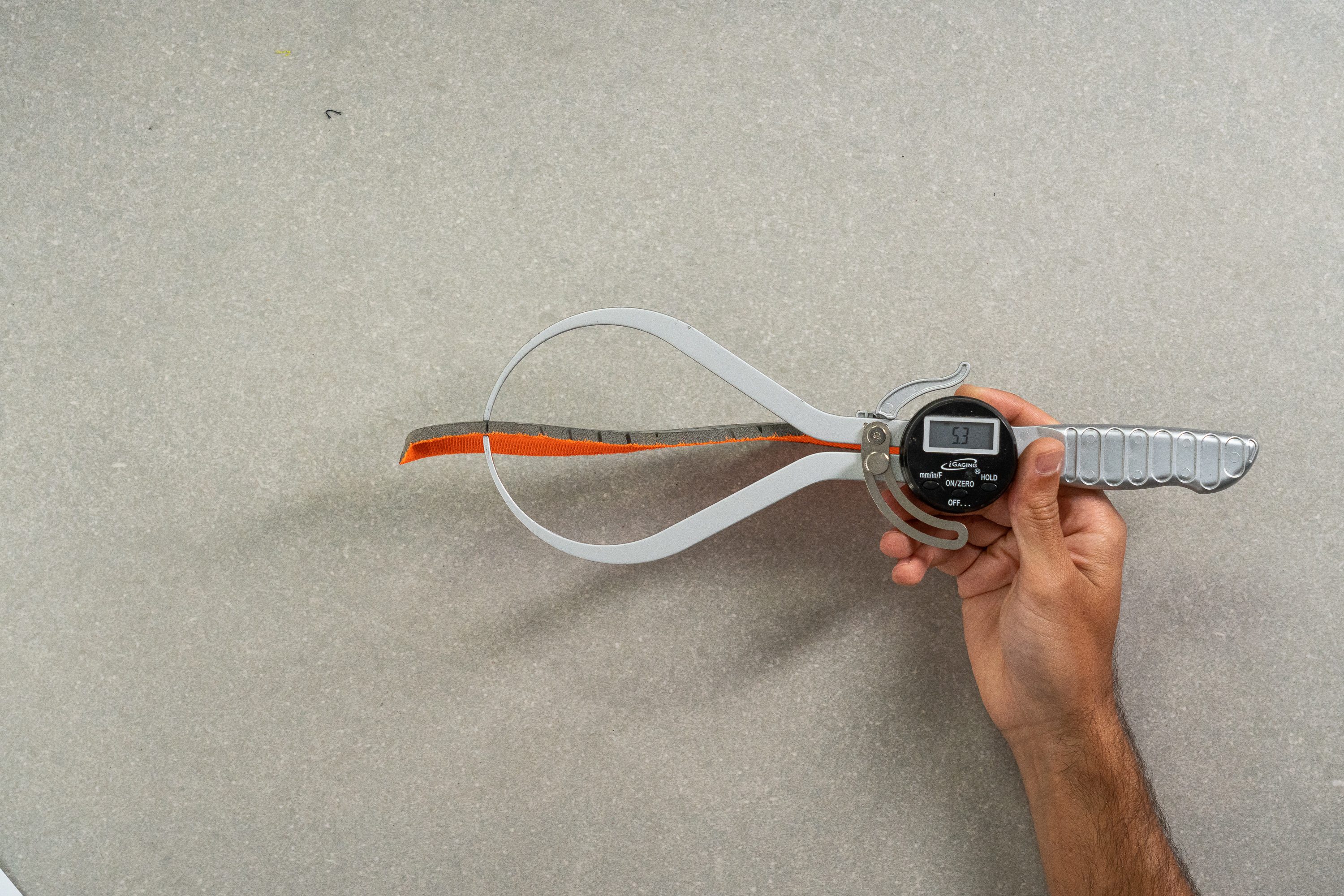
Despite the brand's statement that all of its shoes have a 0-mm drop, the Olympus 5 comes with a 2-mm heel-to-toe differential, based on our measurements: 33 mm (heel) - 31 mm (forefoot) = 2 mm.
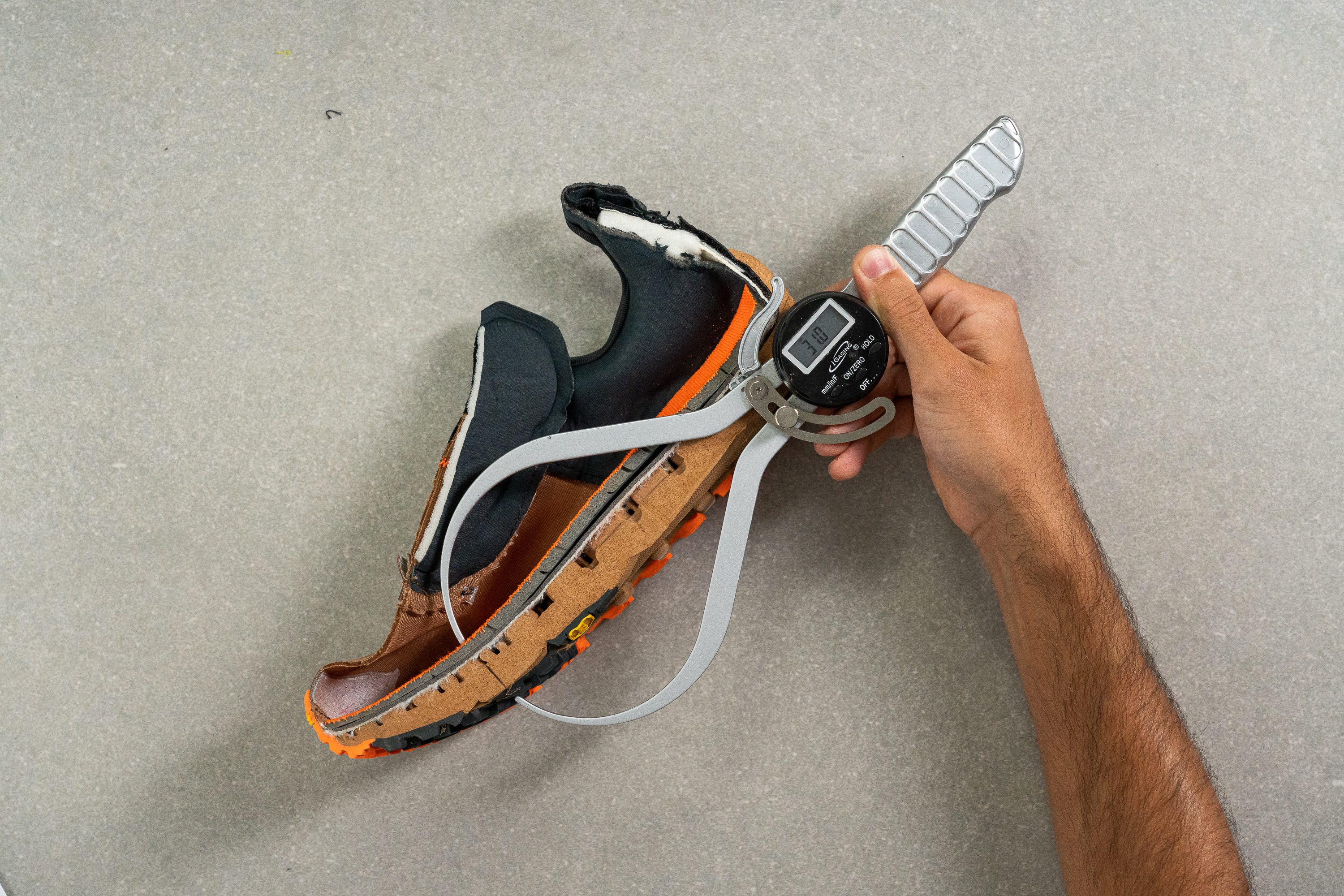
Great airflow for a trail runner
You can see how easily the smoke comes through the shoe's upper in multiple places, not just the toebox.
We also checked the upper fabric transparency with a light test.
The Olympus 5 adds some flavor to your run
Why? Because it has an additional kick and energy return. Upon landing, the shoe feels like an armchair but on the take-off, it delivers a truly impressive amount of energy return.
Flexibility is sacrificed though
With all that amount of cushioning, we expected that the Altra Olympus 5 would be far from a minimalist shoe in terms of flexibility.
But the shoe is full of surprises! And our force gauge test showed that the Olympus requires the same amount of force to bend to a 90-degree angle as the average.
We also gave the shoe's torsional flexibility 3 out of 5 (5 being the stiffest) in our subjective assessment.
Don't worry about your feet slipping
We have thoroughly enjoyed the stable and planted steps ensured by the shoe. Its base is very wide, so you don't have to worry about missteps.
The shoe's forefoot width (110.8 mm) is average compared to other running shoes (111.7 mm). But what makes it impressive is the heel width (100.2 mm) which is 11.5(!)mm wider than the average.
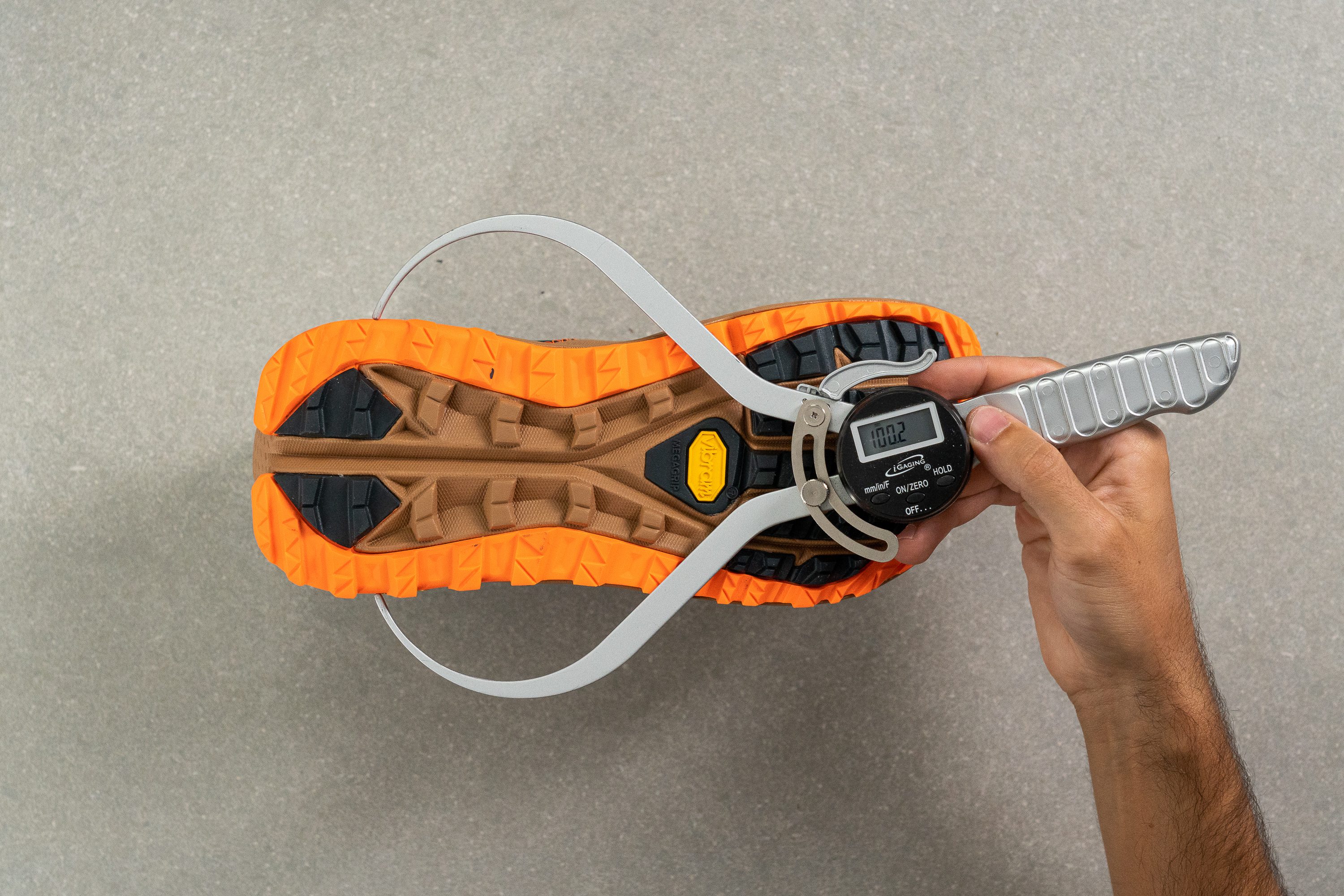
On top of this, the shoe's midsole also has raised sidewalls.
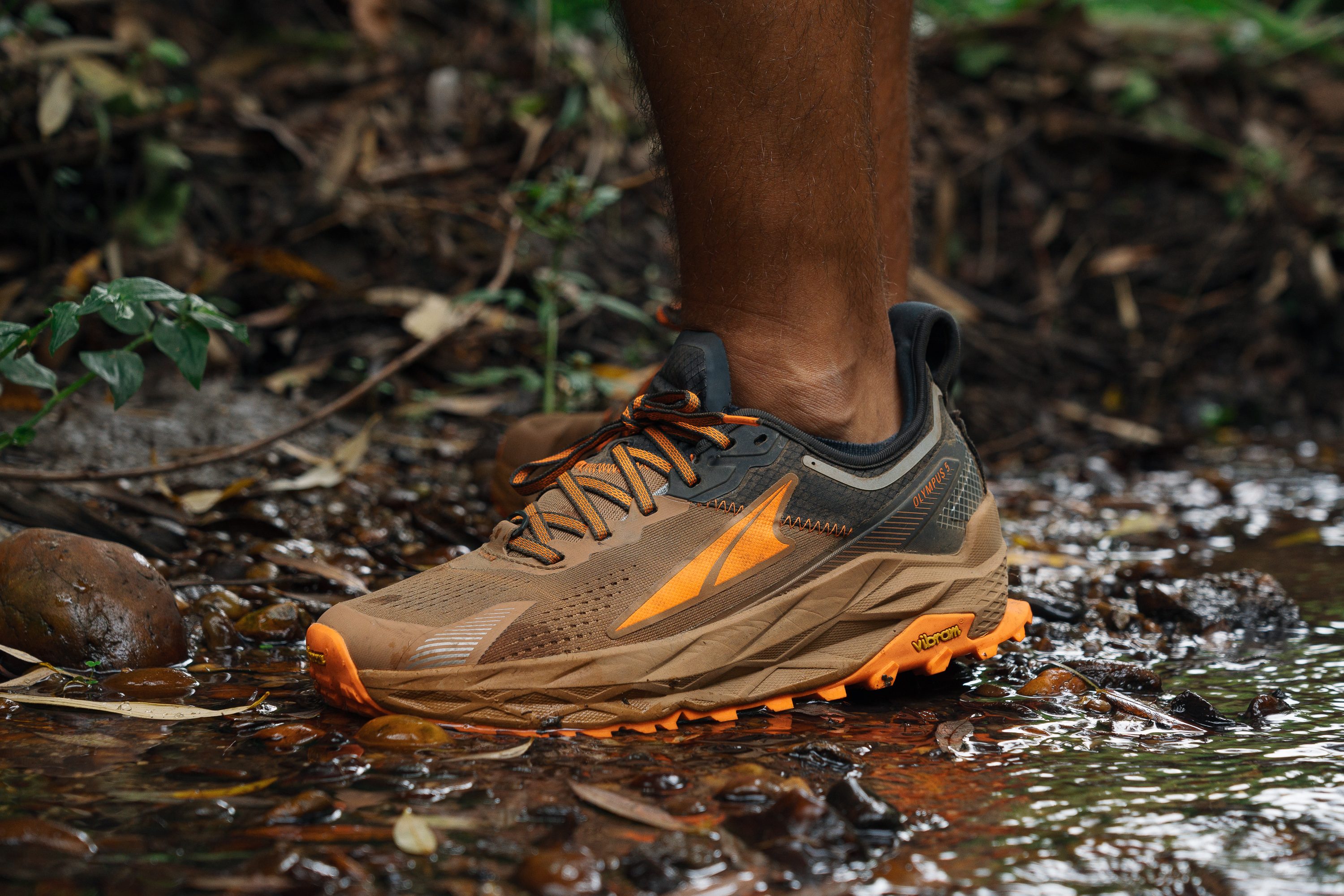
This is a huge step for the Olympus, especially because the fourth version lacked this kind of support.
The heel hold deserves applause
In version 4 of the Altra Olympus, the heel lockdown was also quite disappointing. But this issue has been addressed in the newer iteration.
With the more generously padded heel counter, we experienced zero slippage!
Altra nails the fit in the Olympus 5
The Altra Olympus 5's fit is fantastic!
The midfoot and heel areas are very snug-fitting whereas the toebox offers an enormous amount of space.
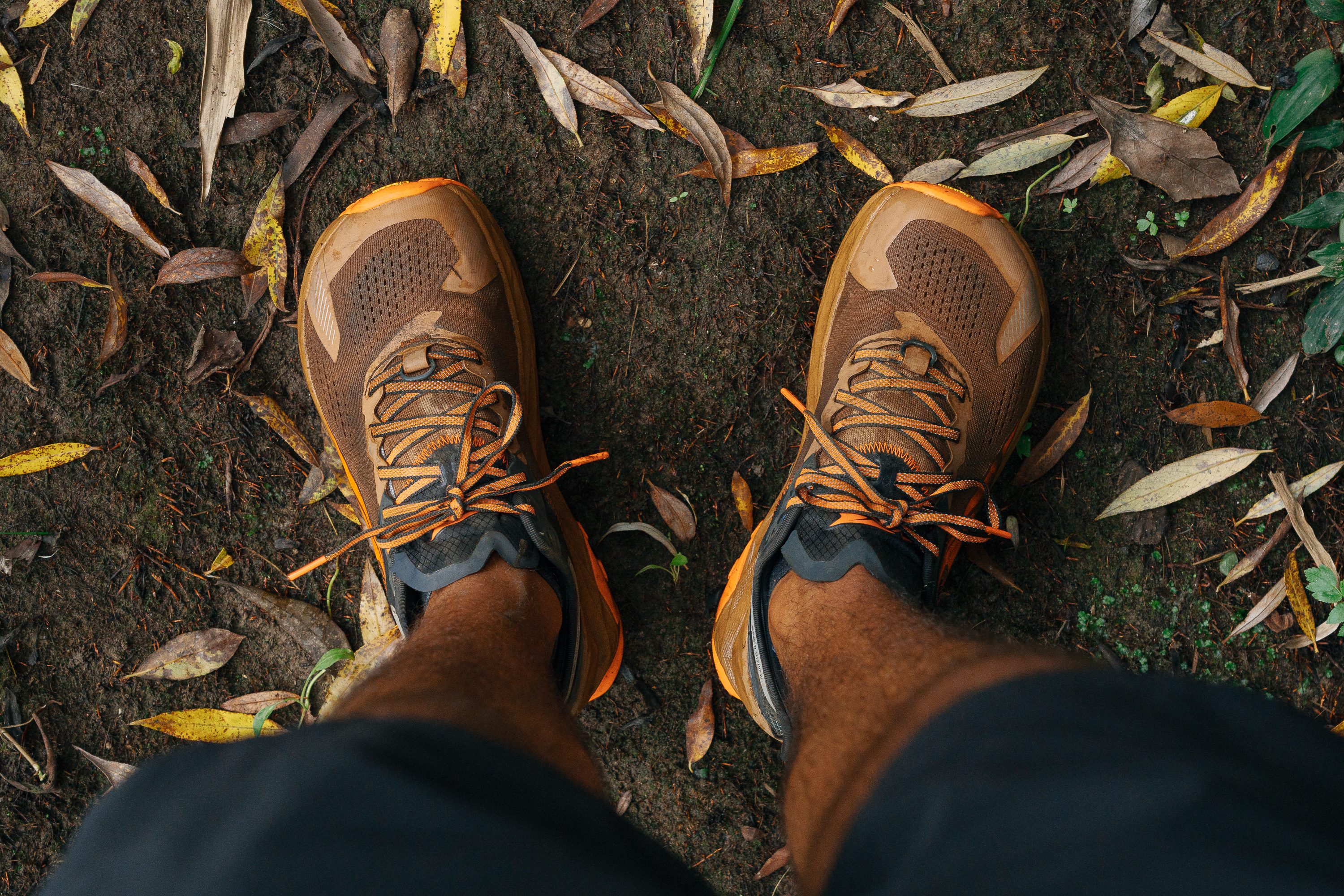
The fully gusseted tongue also contributes to the locked-in feel.
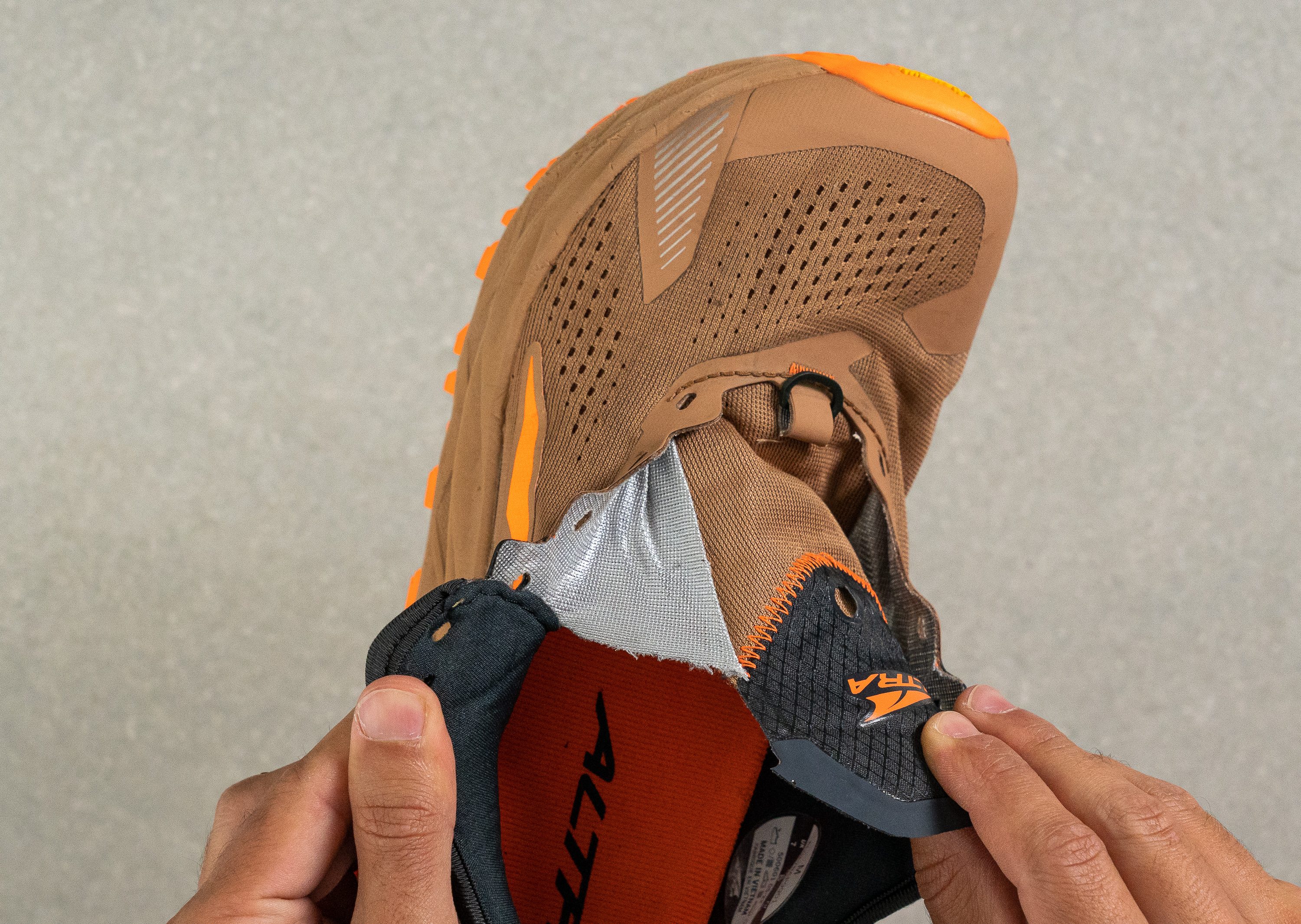
The toebox is a true Altra
This means that it offers plenty of toe space. Black toenails are a thing of the past with the Olympus 5.
The forefoot in this Altra shoe is indeed much wider than most running shoes. We measured its widest part at 103.4 mm, which is nearly 5 mm wider than the average. Not to mention the wide and squared shape of the toebox!
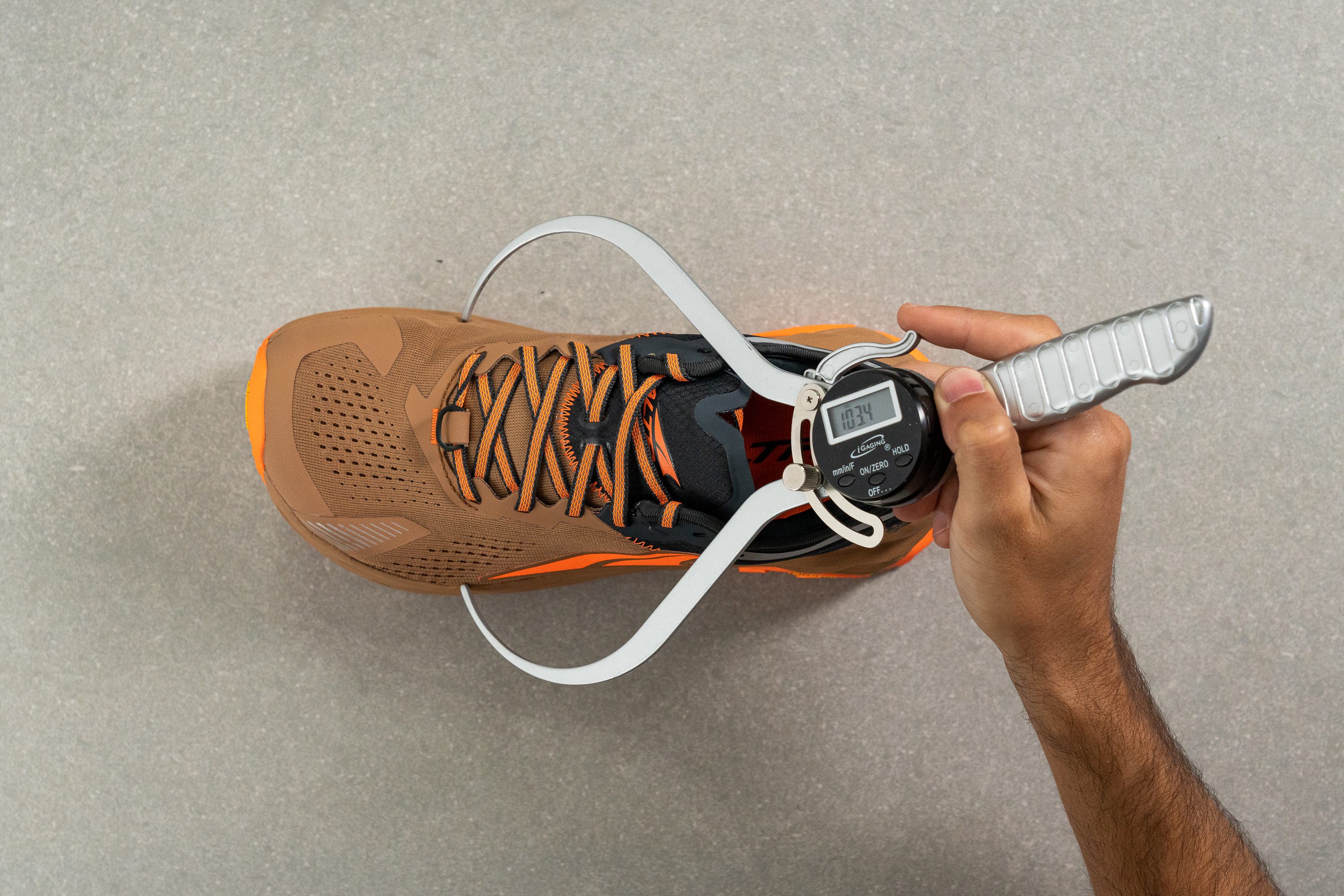
Reflective elements keep you visible
The laces and lines around the collar are made reflective so that you can run more confidently in low-light conditions.
It's easy to put on and take off
Thanks to the added pull tab, it's now easy to slide the Olympus 5 on and off.
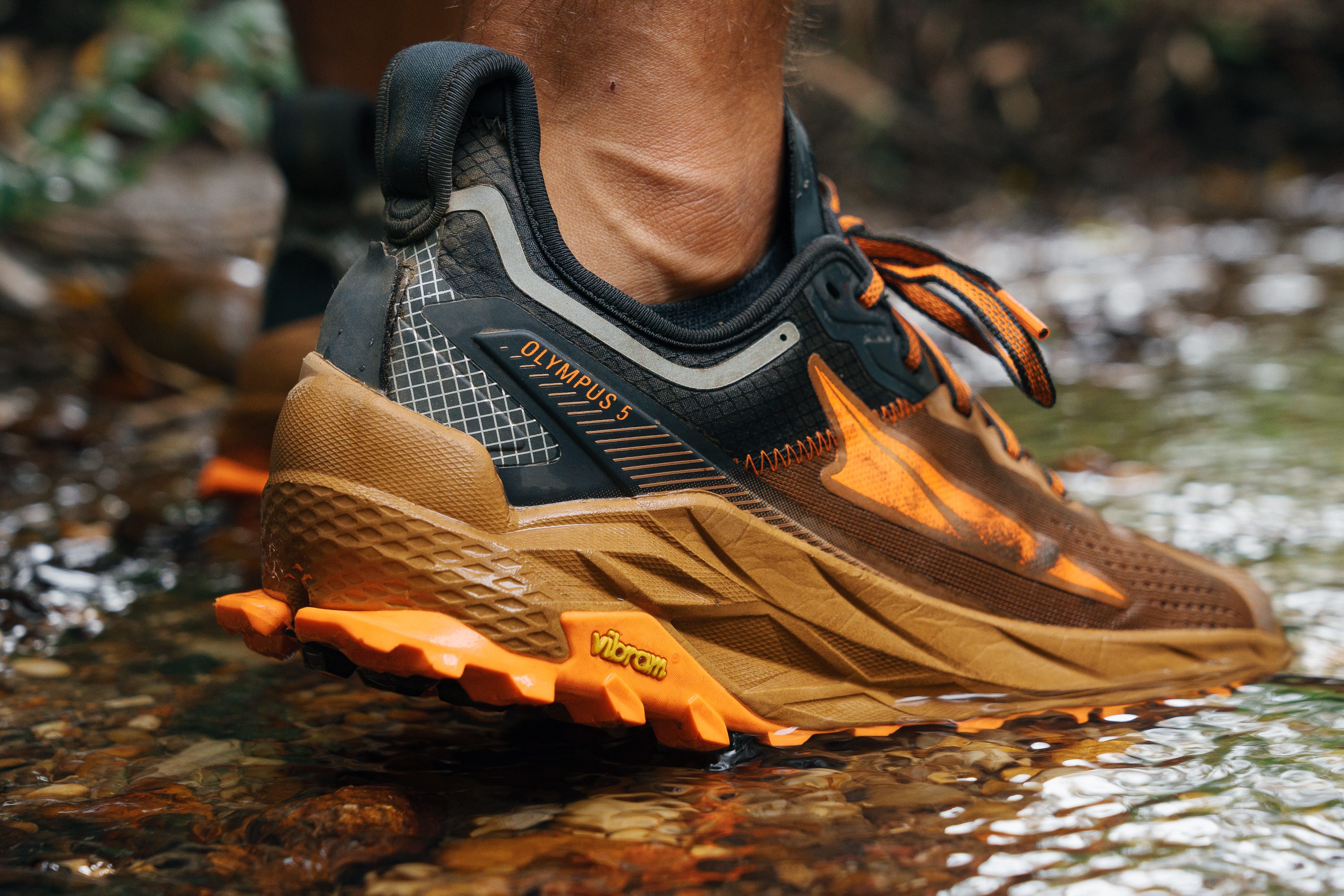
Ugh, that annoying lace bite
Unfortunately, the laces kept cutting into our skin in this Altra shoe.
This is surprising because we actually measured the tongue thickness to be 7.4 mm. This is thicker than the average 5.8 mm.
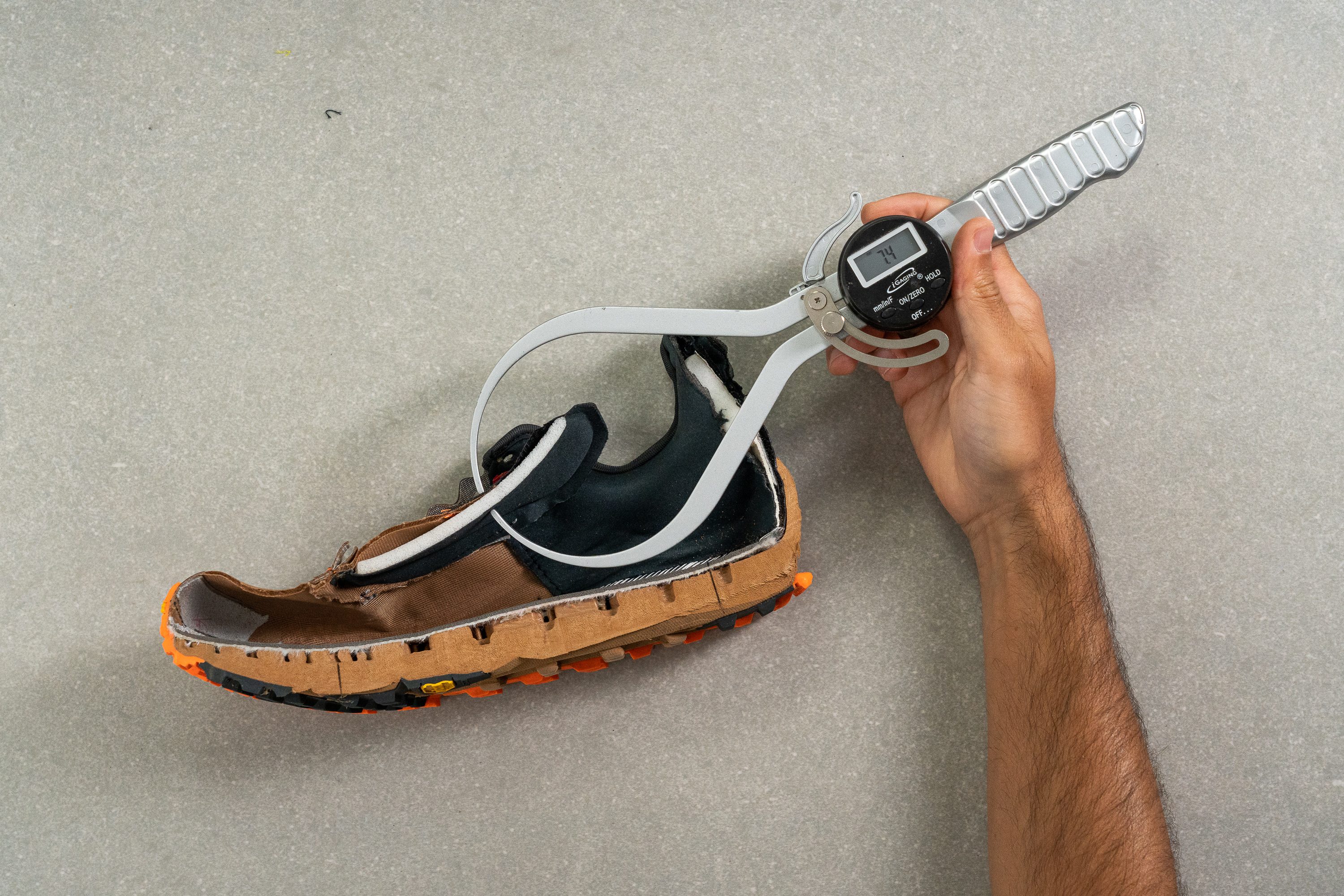
Perhaps this is because the padding doesn't extend all the way up the tongue.
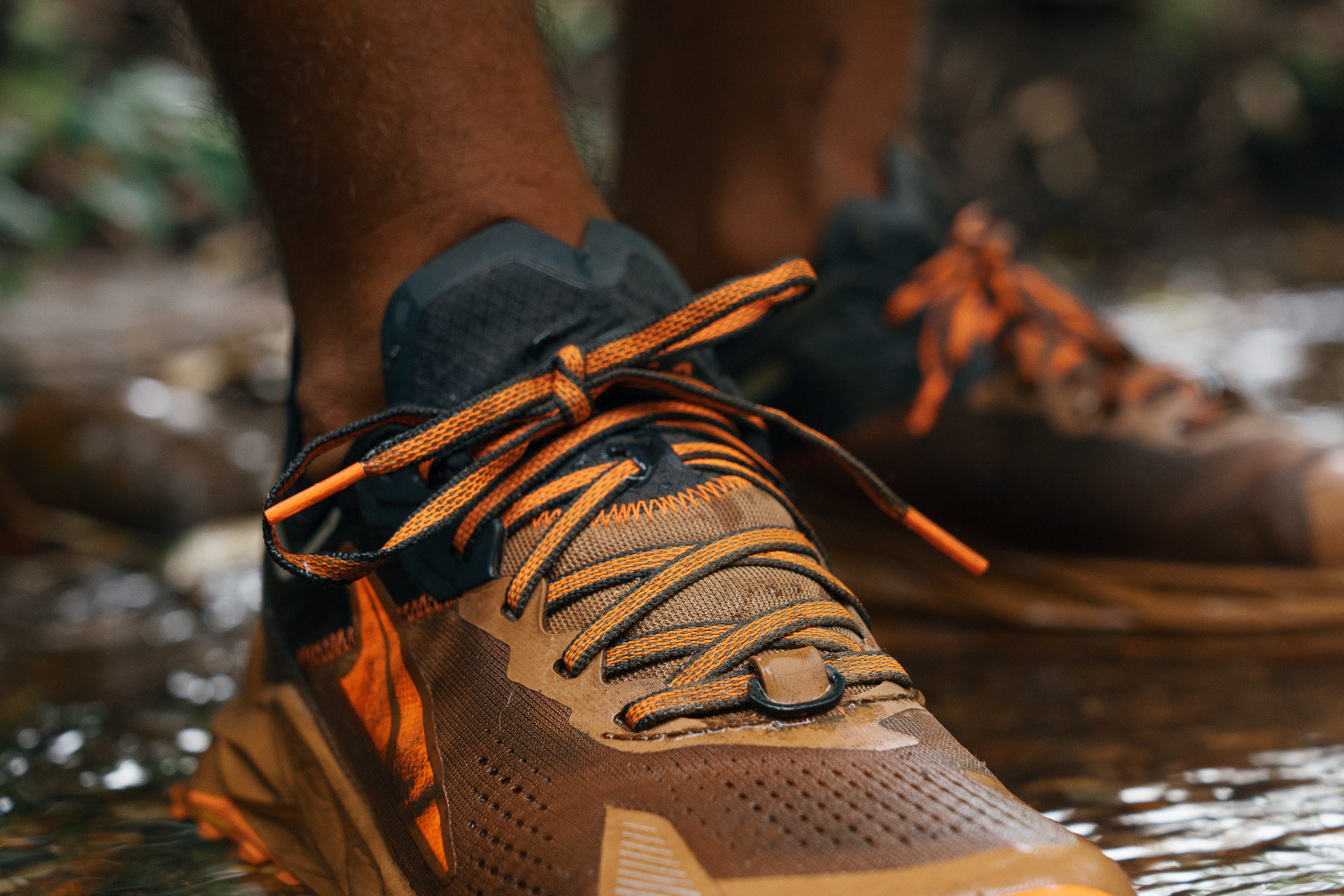
This is $180?
Because its durability says otherwise. The outsole, although Vibram, sucks because it doesn't hold up well. It started peeling away from the sole after only a few runs!
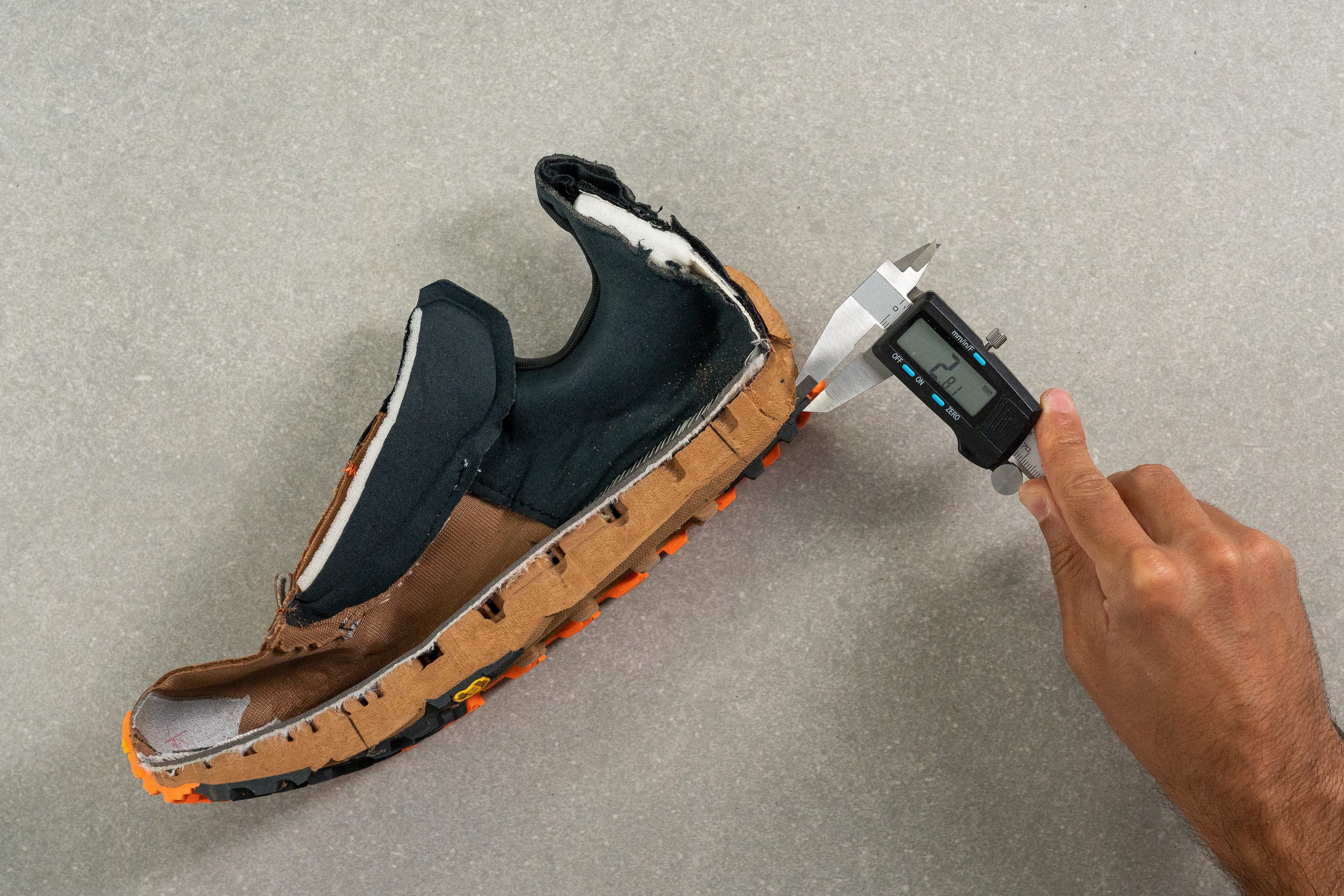
We also discovered that the shoe has thinner-than-average rubber layers and lugs. The Vibram outsole is 2.8 mm, 0.7 mm thinner than the average. The lugs (3.0 mm) are also a bit smaller than the average (3.5 mm). That means it takes less abrasion to wear through the shoe's outsole.
At least it bites
On the bright side, the outsole does stick to the ground. It performs and grips well.
Whether on wet or dry roads or wet and dry trails, the Altra Olympus 5 clings.
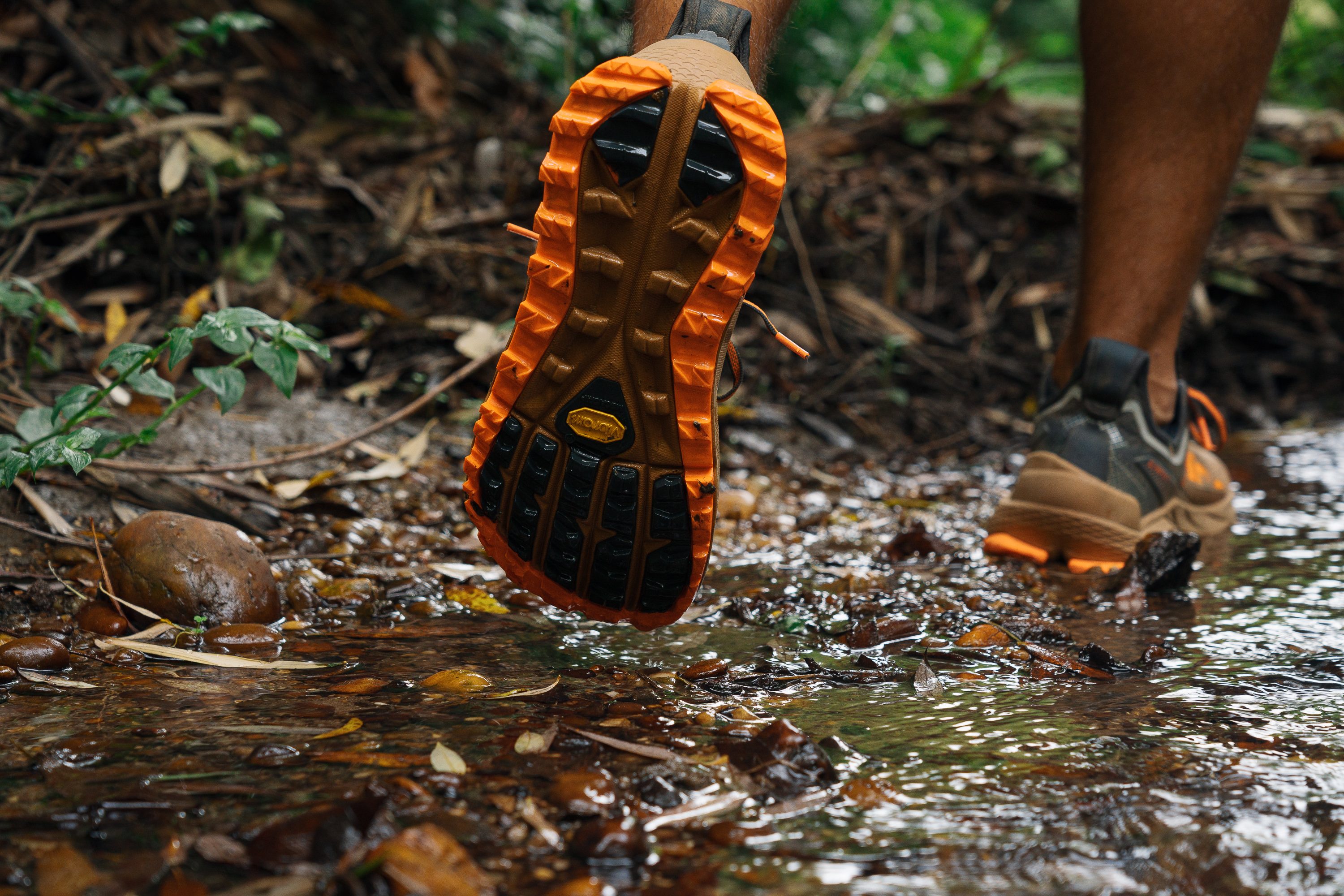
Convenient gaitor attachment
There is a Velcro piece at the back which is very handy for fixing your gaitor.
